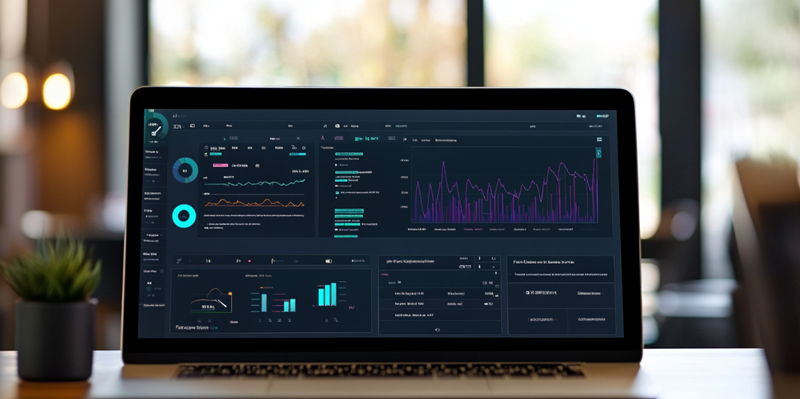In the rapidly evolving business landscape, having a robust financial planning system is crucial for maintaining an organization’s competitive edge. The Dynamics 365 Finance and Operations (D365FO) Budgeting Module is an invaluable tool designed specifically to support efficient financial planning. This module not only enhances budget control, forecasting, and resource allocation, but also enables data-driven financial decisions that can profoundly impact a company’s bottom line. By integrating seamlessly with the broader D365FO suite, businesses can proactively manage budgets, streamline the budgeting process, and harness real-time insights for better financial management.
The D365FO Budgeting Module is built with key components that are essential for maintaining a high level of financial control and preventing overspending. One such component is Budget Register Entry, which captures critical transaction details including budget amounts, accounts, and dimensions. By enabling users to create Budget Register Entries through manual data entry, data import, or the replication of existing entries, the module provides a flexible and user-friendly interface for budget management. Additionally, the module includes Budget Account Entries, which are crucial for sustaining financial oversight and discipline across various departments within the organization.
Centralized Budgeting Configurations
The D365FO Budgeting Module empowers businesses through its comprehensive configuration options, which allow for tailored financial planning to meet organizational needs. Key configuration steps include selecting budgeting dimensions to categorize financial data, defining budget models to analyze different financial scenarios, and assigning budget codes to systematically organize transactions. This level of customization ensures that financial data is not only accurate but also aligned with the specific financial goals and strategies of the organization.
D365FO’s workspaces play a pivotal role in centralizing budget tracking, offering a consolidated platform where project controllers can efficiently compare budgeted figures with actual spending. By allowing users to explore detailed insights directly within these workspaces, D365FO enhances the transparency and accuracy of financial reporting. This capability enables financial managers to identify variances promptly and make informed decisions to rectify discrepancies, ensuring that budgets are adhered to more closely and financial performance is optimized.
Advanced Budgeting Techniques for Enhanced Accuracy
Advanced budgeting techniques provided by the D365FO Budgeting Module further augment the accuracy and efficiency of financial planning. One noteworthy feature is the Budget Register Entries for Quantity Only, which allows for the tracking of non-monetary data. This is particularly beneficial for businesses that need to track quantities such as units produced or hours worked, providing a more comprehensive view of resources and outputs. Additionally, the module supports Defaulting Amount Type, a feature designed to reduce data entry errors and ensure consistency across all budget entries.
Proper setup is critical for leveraging these advanced functionalities. Configuring budget transfers, defining journal sequences, and tailoring workspace settings are essential setup guidelines that help optimize the budgeting process. The detailed templates and automated calculations facilitated by D365FO vastly improve financial forecasting accuracy, enabling businesses to develop more reliable and actionable financial plans. Moreover, scenario analysis features within the module allow organizations to evaluate multiple budget scenarios, providing a nuanced view of possible financial outcomes and enabling strategic decision-making.
Real-Time Insights and Automated Workflows
One of the standout features of the D365FO Budgeting Module is its ability to provide real-time insights and automated workflows. This functionality ensures that organizations can continuously monitor their financial performance and make adjustments as needed. Inquiry pages offer an in-depth view of budgets, allowing users to track financial performance, compare budgets with actual spending, and review the state of budgets over various time frames. This real-time monitoring capability is crucial for preemptively addressing potential budget variances and making data-driven adjustments that enhance financial outcomes.
By leveraging D365FO’s integrated tools and automated workflows, organizations can significantly optimize their financial operations. These advanced features empower businesses with immediate visibility into budget variances, enabling proactive adjustments while reducing the risk of financial discrepancies. Real-time insights, coupled with scenario analysis and dynamic forecasting, foster an environment of continuous improvement and strategic foresight, ultimately leading to superior resource allocation and improved financial performance.
Comprehensive Solutions from Pharos Solutions
In today’s fast-paced business environment, maintaining a strong financial planning system is essential to stay competitive. The Dynamics 365 Finance and Operations (D365FO) Budgeting Module is an essential tool for efficient financial planning. This module not only improves budget control, forecasting, and resource distribution but also empowers data-driven financial decisions that can significantly affect a company’s profitability. By seamlessly integrating with the broader D365FO suite, companies can manage budgets proactively, simplify the budgeting process, and leverage real-time insights for superior financial management.
The D365FO Budgeting Module comprises essential components to ensure high-level financial control and prevent overspending. One key feature is Budget Register Entry, which records critical transaction details such as budget amounts, accounts, and dimensions. Allowing users to create Budget Register Entries through manual input, data import, or replication of existing entries, the module offers a flexible and user-friendly interface for budget management. Additionally, the module includes Budget Account Entries, vital for maintaining financial discipline and oversight across various departments in an organization.

